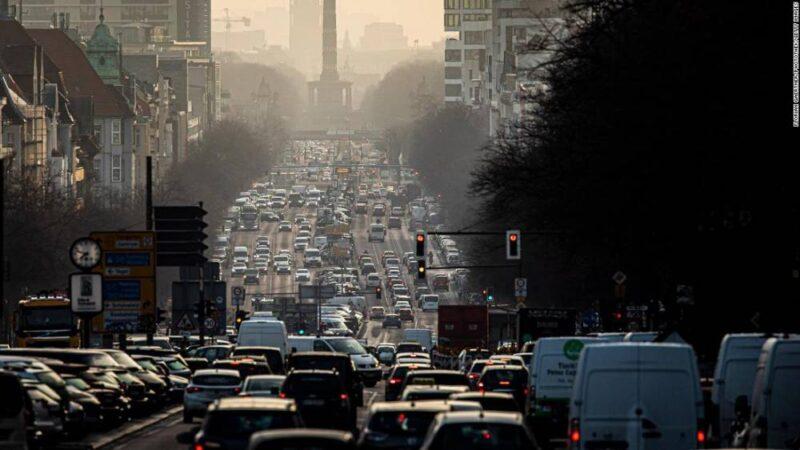London (CNN Business)Less than a quarter of the world’s big public companies are doing their part to address the climate crisis, according to new research highlighting the shortcomings of corporate climate pledges.
In an analysis published on Thursday, sustainable finance firm Arabesque assigned companies in 14 of the world’s largest stock indexes a “temperature score” based on publicly reported emissions data between 2015 and 2019.It found that less than 25% of companies are on track to achieve the goals of the Paris agreement by 2050, which aims to limit the global temperature increase to 1.5 degrees Celsius.

Dalai Lama and 100 other Nobel Prize laureates call for fossil fuels to be phased out Despite growing commitments by companies to tackle the climate crisis, emissions have continued to rise since 2015 and initial data shows there was a decrease in global Paris-alignment last year, according to Arabesque, which uses data to assess corporate sustainability performance.
The company’s chairman, Georg Kell, said the research confirms that voluntary measures taken by companies “have made a difference here and there, but they don’t add up to systemic change.”Read More”This is a critical year,” Kell, who is founding director of the UN Global Compact, told CNN Business. “Time is running out. We need to significantly step up, we have only a few years left.”Arabesque’s research found that flagship indexes in Sweden, Germany, Switzerland, Finland and Japan have the largest number of listed companies on course to meet the 1.5 degrees Celsius target by 2050. The figure is lower for London’s FTSE 100 (UKX) and the US S&P 100 (OEX), and drops even further for Hong Kong’s Hang Seng Index and Australia’s ASX 50.
The study covered emissions generated directly and indirectly by companies, known as scope 1 and scope 2 emissions, but did not cover emissions from the products they sell, known as scope 3, due to difficulties obtaining this data.Arabesque’s data also shows that 15% of companies, with a combined market value of $5 trillion, are not publicly disclosing their greenhouse gas emissions. That’s an improvement on 2014, but “has yet to translate into corporate climate action at scale,” said Rebecca Thomas, who led the research.”While overall progress is encouraging, a lot more needs to be done to keep the 1.5-degree goal within reach,” she added.
Putting a price on carbon
The report coincides with the start of a two-day virtual summit on the climate crisis convened by US President Joe Biden, which dozens of world leaders are expected to attend. The summit will “underscore the urgency — and the economic benefits — of stronger climate action,” according to a statement issued by The White House last month.While governments around the world are including environmental projects in their coronavirus recovery plans, the International Energy Agency warned earlier this week of a surge in global carbon dioxide emissions as economies bounce back from the pandemic.

'Dire warning' for the planet: Coal is powering the economic recoveryKell said that governments have been slow to act on the climate crisis, particularly when it comes to carbon pricing, which effectively taxes companies for carbon pollution and is widely viewed as the most effective way for countries to reduce emissions. “We have to price carbon significantly higher across the board in order to have systemic change,” he added.Given relatively little government intervention, Kell said it was “not a small thing” that a quarter of companies are aligned with the Paris goals.
“The fact that many European former oil and gas companies are exploring renewables and electrification should be welcome,” he added, pointing to the shift towards electric vehicles among car manufacturers as another sign of progress that was “unthinkable” just a few years ago.”The imperative to decarbonize is increasingly urgent and it will be forced upon corporations ready or not,” Kell said. “Those that think ahead and anticipate a higher carbon price in the future will clearly be much better positioned.”
Source: edition.cnn.com

